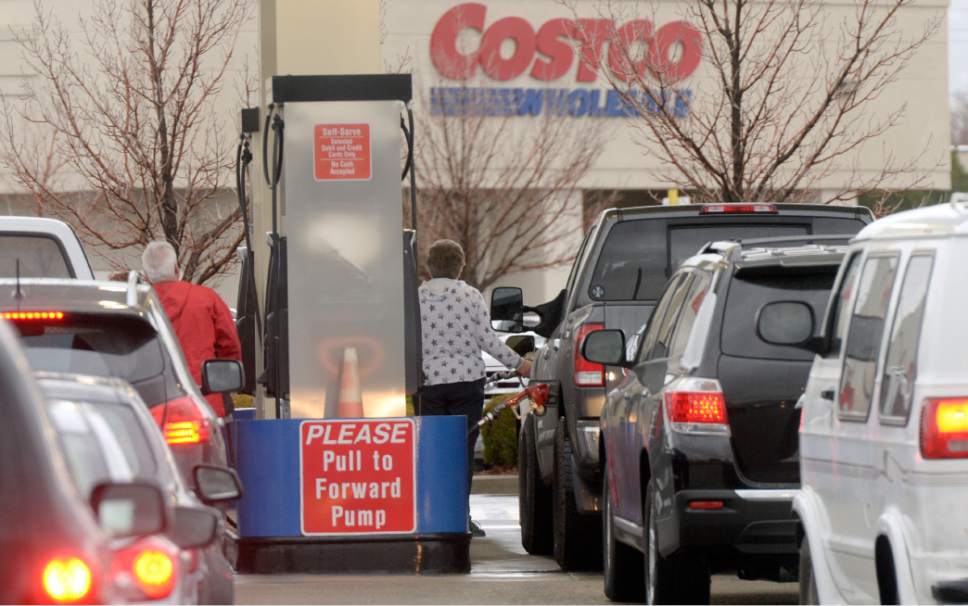This is an archived article that was published on sltrib.com in 2017, and information in the article may be outdated. It is provided only for personal research purposes and may not be reprinted.
Lawmakers advanced a bill Thursday to ensure that automatic state gasoline tax increases begin Jan. 1 — and that such future tax hikes also would be larger than allowed by current formulas.
They said they have no estimates yet on exactly how big the increases may be next year.
That came as the Senate Transportation Committee voted 4-0 to approve SB276, and sent it to the full Senate for consideration.
Its sponsor, Sen. Kevin Van Tassell, R-Vernal, explained that when the Legislature raised the state gasoline tax two years ago by 4.9 cents a gallon to 29.4 cents, it also included provision to allow automatic tax hikes in the future as gas prices rise.
But gasoline prices were high in 2015 when that was enacted, and target prices for when to trigger increases were also set relatively high. Gas prices have since plummeted. The bill would readjust formulas to likely generate increases Jan. 1.
Abby Osbourne, with the Salt Lake Chamber, said that back in 2015, lawmakers expected that automatic increases triggered by gasoline price increases would start in 2018.
But with low prices since then, "we are not projected to meet the floor" to trigger increases "until 2028, leaving us 10 years of loss of buying power of that gas tax."
Besides more immediate gas tax increases, Van Tassell's bill may also allow bigger ones, too.
Current formulas charge 12 percent of the average state rack rate of gasoline over the previous year. The bill would raise that to 16.5 percent.
Another change would also mean that not all of new gas tax hikes would go to transportation.
"It peels back 35 percent of the total back into the general fund," Osbourne said, allowing lawmakers to divert it to non-transportation uses if they choose. That is seen as a way to start reducing subsidies for transportation out of sales tax and other funds, Osbourne said.
Seventy percent of the gas tax goes to the state, and 30 percent goes to cities and counties for local roads.
Osbourne — whose business group pushed hard for transportation tax increases in the past to help commerce — said even if an increase comes in January, it won't come near to addressing all the identified transportation needs the state has.
"There is still $8 billion of needs between now and 2040 in our state transportation infrastructure," she said, adding the increase "won't even come close to alleviating the entire problem."
Van Tassell said the state is already falling behind in funding transportation needs, and delaying the start of automatic gas tax increases will only make it worse as it tries to plan adding 2 million people over the next 20 years.
"The reality of it is that it costs money to build highways," he said.
Andrew Gruber, executive director of the Wasatch Front Regional Council, which handles long-range transportation planning, said the bill will help the state "keep pace with inflation" for transportation maintenance and construction.
The tax hike was opposed by John Hill, representing the Utah Petroleum Marketers and Retailers Association, which represents local gas stations and convenience stores.
"We are concerned by the reaction of our convenience store customers when they get another tax increase on Jan. 1 after receiving one only two years ago," he said.
Hill's group also opposes automatic increases — which may be noticed more as higher gas prices charged by the group's members. He said the Legislature instead should vote anytime it choose to raise those taxes.



